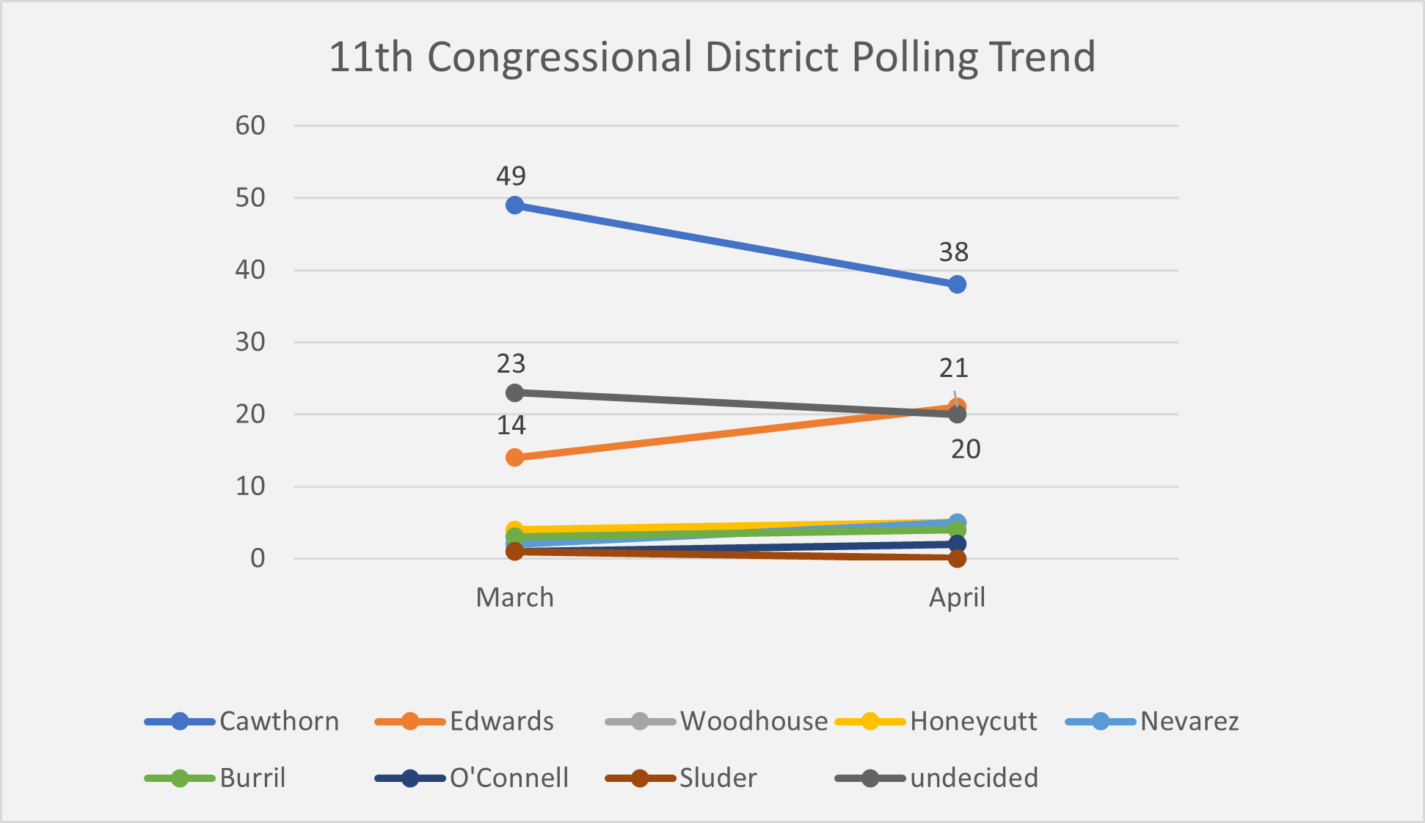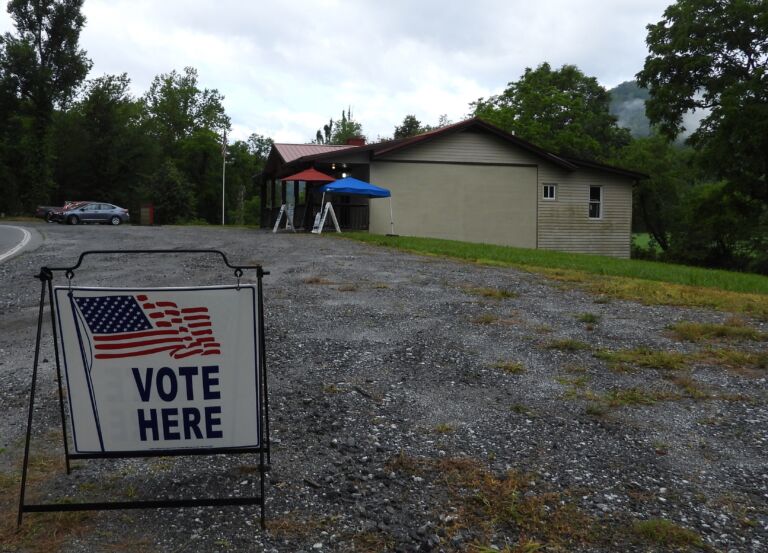(Photo of Madison Cawthorn by Gage Skidmore)
I wrote in early April about an effort by progressives in western North Carolina to get Democrats to change parties to vote against Madison Cawthorn in the 11th Congressional District Republican primary. The chances of such an effort succeeding are slim:
90,696 people voted in the Republican primary in 2020. Even if there is some drop-off in turnout from 2020, 2,000 more votes against Cawthorn would only make a difference if both the race is close and most of those crossover votes go to his main challenger. The odds of both of those things happening are low.
Data on the Effort to Unseat Cawthorn
Since then, we have access to some more data to help us better understand what is happening in the 11th District. First, we have complete numbers on party switching this year ahead of the May 17 primary (voters cannot change parties between April 22 and primary day). Looking at party-switching data for 2020 from the North Carolina State Board of Elections, we found the following statewide:
- 3,239 Democrats switched to Republican or unaffiliated (and so can vote in the Republican primary) in the 11th District.
- An average of 1,186 Democrats per district switched to Republican or unaffiliated in the rest of the state.
- So there were 2,053 “excess” Democrats in the 11th District who changed to Republican or unaffiliated. That is the best reasonable estimate we have of how many Democrats have joined the effort to influence the 11th District Republican primary.
Even if we assume that a similar number of progressive unaffiliated voters will also join the effort to beat Cawthorn in the Republican primary, that is just 4,000 out of what will likely be around 90,000 votes.
Progressives Strategically Voting in the Republican Primary
Are those progressive voters supporting their preferred candidate? Certainly not. Their preferred candidate is running in the Democratic primary and nearly all of them will vote for the Democratic nominee in November. So their effort to beat Cawthorn in the Republican primary is a form of strategic voting:
People do not always vote for the party that they like the most. Sometimes, they choose to vote for another one because they want to maximize their influence on the outcome of the election.
Those progressives are trying to beat Cawthorn in the Republican primary because they don’t believe any Democrat can beat him in the general election.
Will it Work?
Going back to my original formula, the attempt by progressives to influence the outcome of the 11th District Republican primary can only work if two conditions are satisfied:
- the race is close
- most of those crossover votes go to his main challenger
Let’s look at those conditions. First, is the race close? If you would have asked me that question a month ago, I would have said “no.”
Things have changed since then, however. It seems that not a week goes by without some new misstep or revelation about the young incumbent and they appear to be taking a toll. A pair of polls found that Cawthorn’s support dropped from 49% in early March to 38% in late April. If that trajectory continues, he will be down to about 33% on May 17.

Polling data source: GOPAC/Differentiators Data
Those same polls also indicated that only one of Cawthorn’s opponents has a chance of beating him on May 17 or even taking him to a second (run-off) primary: North Carolina Senator Chuck Edwards. The same polling that showed Cawthorn dropping has Edwards rising to potentially get within striking distract of beating Cawthorn by May 17.
Strategic Voting Does not Work if Voters Refuse to Vote Strategically
So, it appears that the first condition, the race being close, will be satisfied. That leaves the second condition: most of those crossover votes go to Cawthorn’s main challenger.
That is where the “fire Madison” effort goes off the rails.
While Edwards has emerged as the main obstacle to Cawthorn winning the primary, the group behind the effort to get progressives to vote in the Republican primary, “Fire Madison,” is backing long-shot candidate Wendy Nevarez. The same polling data that has Edwards gaining on Cawthorn shows Nevarez mired in the single digits. Even with eight candidates in the primary, Cawthorn or Edwards (or both) will likely end up over the 30% minimum needed to avoid a runoff.
Nevarez is a moderate who may be what progressives think is a good Republican. If you are a progressive voter in the Republican primary, Nevarez would likely be your sincere vote. The problem is that casting a sincere vote for Nevarez defeats the purpose of progressives voting in the Republican primary in the first place.
By encouraging crossover voters to support a long-shot candidate instead of the only candidate who has a realistic chance of beating Cawthorn, the “fire Madison” folks might accidentally help him eke out a win in the May 17 primary.


